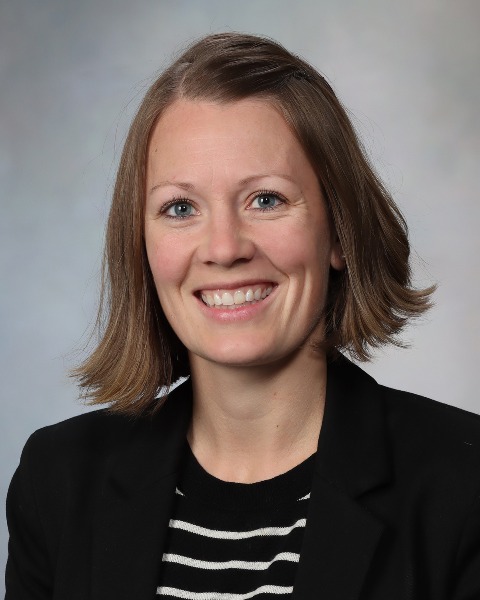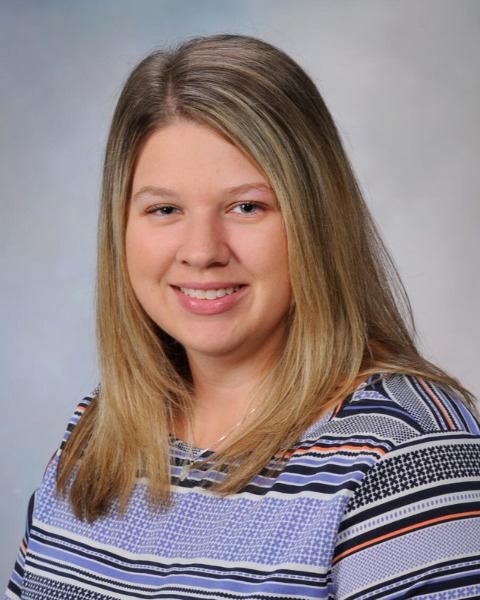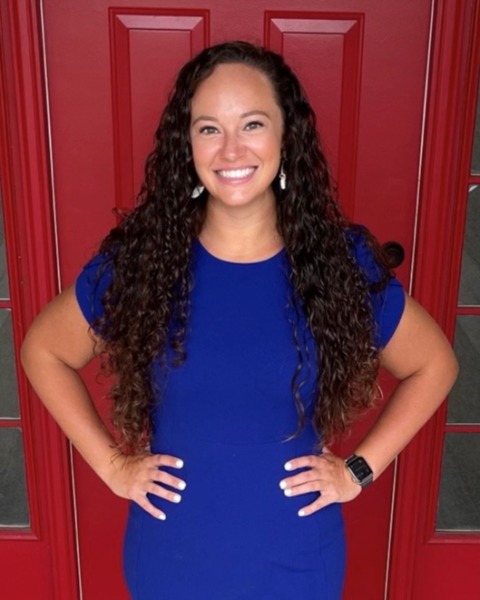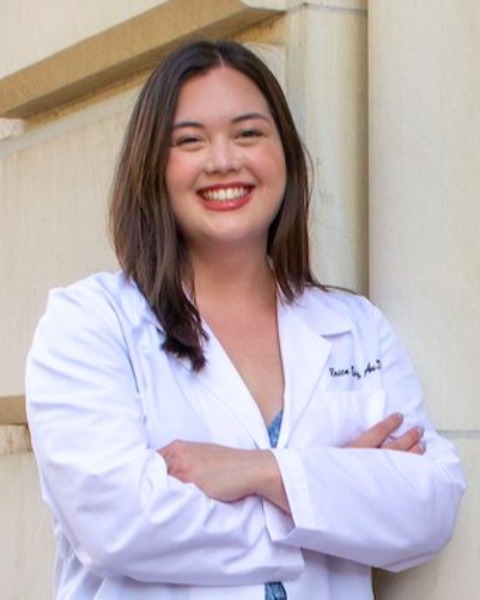Adult Diagnostic (AD)
PP1608 - Fast, Accurate, and Free: The Adaptive Everyday Word Recognition Test
- DZ
David Zapala, PhD
Consultant
Mayo Clinic Florida
Mayo Clinic Alix School of Medicine
Jacksonville, FloridaFinancial Disclosures: I do not have any relevant financial relationships with anything to disclose.
Non-Financial Disclosures: I do not have any relevant non-financial relationships with anything to disclose. 
Greta Stamper, Aud, PhD
Audiology Chair
Mayo Clinic Florida
Jacksonville, FloridaFinancial Disclosures: I do not have any relevant financial relationships with anything to disclose.
Non-Financial Disclosures: I do not have any relevant non-financial relationships with anything to disclose.- TP
Terri Pratt, AuD (she/her/hers)
Audiologist / Supervisor
Mayo Clinic Florida
Jacksonville, FloridaFinancial Disclosures: I do not have any relevant financial relationships with anything to disclose.
Non-Financial Disclosures: I do not have any relevant non-financial relationships with anything to disclose. 
Courtney C. Luffler, AuD (she/her/hers)
Clinical Audiologist
Mayo Clinic Florida
Jacksonville, FloridaFinancial Disclosures: I do not have any relevant financial relationships with anything to disclose.
Non-Financial Disclosures: I do not have any relevant non-financial relationships with anything to disclose.- SJ
Sara L. Jagger, AuD (she/her/hers)
Clinical Audiologist
Mayo Clinic
Mayo Clinic College of Medicine and Science
Jacksonville, FloridaFinancial Disclosures: I do not have any relevant financial relationships with anything to disclose.
Non-Financial Disclosures: I do not have any relevant non-financial relationships with anything to disclose. 
Kaleigh C. Browning, AuD
Clinical Audiologist
Mayo Clinic
Louisiana Tech University
Palm Coast, FloridaFinancial Disclosures: I do not have any relevant financial relationships with anything to disclose.
Non-Financial Disclosures: I do not have any relevant non-financial relationships with anything to disclose.
Erica Eng, AuD (she/her/hers)
Audiology Extern
Mayo ClinicFinancial Disclosures: I do not have any relevant financial relationships with anything to disclose.
Non-Financial Disclosures: I do not have any relevant non-financial relationships with anything to disclose.- MG
Millicent S. Garry, MA (she/her/hers)
Clinical Audiologist
Mayo Clinic Florida
Jacksonville, FloridaFinancial Disclosures: I do not have any relevant financial relationships with anything to disclose.
Non-Financial Disclosures: I do not have any relevant non-financial relationships with anything to disclose.
Lead Presenter(s)
Presenter(s)
Contributor (Not Presenting)(s)
Word Recognition (WR) accuracy is a trade-off between wordlist length and test time. The Adaptive Everyday Word Recognition (AEWR) Test presents test items (CVCs) in blocks of three, which the patient repeats. Test items are familiar, culled from recent USA Today articles. Word list length varies adaptively to control test reliability. The 5-year experience at Mayo Clinic in Florida has shown the AEWR test to be fast, reliable, and sensitive to otologic and neurologic disease. Evidence will be summarized. Test recordings will be made available for free to interested attendees.
Summary:
Rational
The Adaptive Everyday Word Recognition (AEWR) test was created to better control word recognition (WR) score reliability and test time by adaptively varying word list length to achieve a desired test accuracy.
Methods
The AEWR uses CVCs culled from USA today. CVCs were ranked by frequency of occurrence (FOO) and aggregated into twenty 15-word sub-lists. Each sub-list has the same average FOO. Items were recorded by a male speaker reciting three words at a time without a carrier phrase. The intensity of each word was leveled to 0dB Vu, +2 to -3 dB.
In practice, the observed WR score and estimated test-retest reliability (binomial estimate) is calculated after each sub-list. If the estimated reliability is less than desired, a 2nd sub-list is concatenated. Testing stops when the desired reliability is achieved. In our clinic, the minimum acceptable test-retest reliability is 6.5%. Thus, any reported WR score has an estimated maximum 95% confidence interval (CI) of +/-13%.
Once accepted, a WR score is compared to the expected score based on the speech intelligibility index. Scores are considered unexpectedly high or low when the expected score does not fall within the CI of the observed score.
To validate the AEWR, WR performance from patients with age- or noise-related hearing loss seen in the Mayo Clinic Florida between 2015 and 2017 were retrospectively evaluated (IRB# 14-008433). Audiologists were free to use either the AEWR, NU-6, or W-22 tests during that time. Test duration estimates and variations between the SII predicted and observed WR scores were analyzed.
Results
Materials: 524 cases used the AEWR (mean age: 62.02 yrs., standard deviation: 15.02 yrs., 49.8% female), 376 cases used the 25-word NU-6 or W-22 tests (mean age: 67.05 yrs., SD: 15.32 yrs., 43% female).
Test time: Average test duration for 25-word lists was 84 seconds (169 seconds for a full list). The average duration for the AEDW test was 91 seconds.
Variation between the SII predicted and observed WR scores: Predicted scores fell within the 95% CI of observed scores 83% (435/524) when the AEWR was used, and 70% (263/376) when 25-word lists were used. R2 values between predicted and observed WR scores were 0.54 and 0.59 for AEWR, and 0.27 and 0.28 for 25-word list right and left ear scores, respectively.
Conclusions
Replacing 25-word lists with the AEWR test would cost less than 12 minutes per 100 tests. However, AEWR CI's would be 13% or less for all reported scores. The 25-word lists would have larger CIs when scores were < 88% or > 12%. The AEDW saves over 2 hours of audiologist time per 100 tests relative to 50-item tests. 50-item tests would be less accurate than AEWR scores when they fell between 70% and 30%. The AEWR also significantly decreased the variation between predicted and observed WR scores, arguing that the AEWR is more accurate. Performance detecting otologic and neurologic conditions will be summarized.
AEWR recordings are available for download at no charge upon request. < E-Mail Address here >
Learning Objectives:
- Explain the relationship between word list length and word recognition score reliability
- Compare or contrast the effect of presenting single words with a carrier phrase versus reciting three words in sequence on word recognition performance
- Be exposed to how to download Adaptive Everyday Word List sound recordings.
